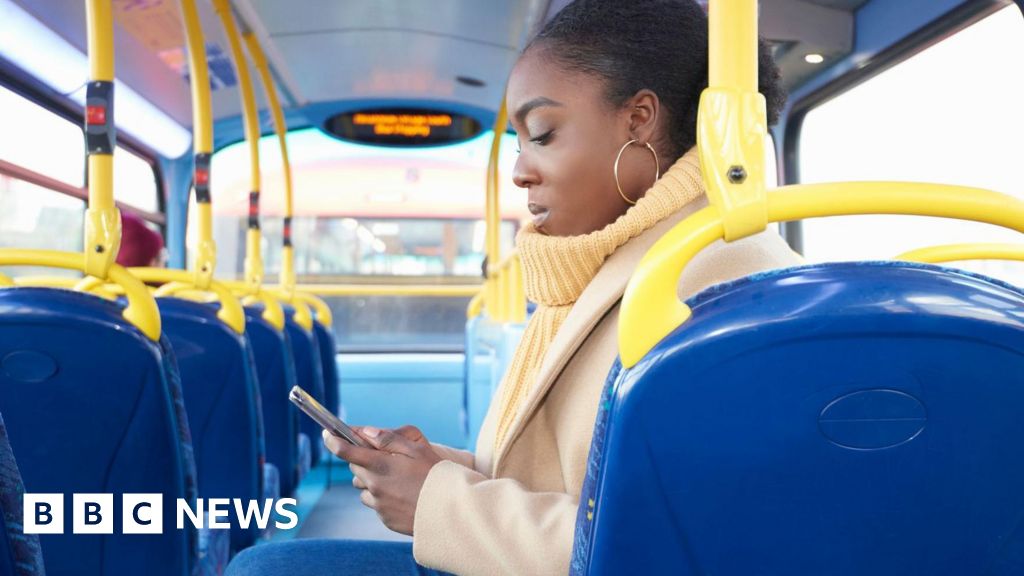Under-22s in England should be given free bus passes to help them get into work and education, according to a report by MPs. The number of bus journeys taken in England has dropped in recent years, while fares have risen faster than inflation. This was a barrier to opportunity and growth in some areas, MPs found, recommending a pilot scheme of free bus travel at any time of day for under-22s.
The Department for Transport said it was providing £1bn in multi-year funding to improve the reliability and frequency of bus services across the country. Since January 2022, everyone in Scotland aged between five and 22 has been entitled to free bus travel. In England, the number of bus passenger journeys had dropped from 4.6 billion in 2009 to 3.6 billion in 2024.
Some smaller towns and rural areas have no bus services at all, or buses that run so infrequently that they do not meaningfully add to people’s transport options. A 2019 study found that some 57% of jobseekers lived in areas where they could not reach a centre of employment within 45 minutes by bus. High bus fares and limited local provision can severely restrict young people’s access to education, employment, and other opportunities.
Alex Mustafa, 19, says she uses the bus all the time as she can’t drive due to health and financial reasons and would benefit from a free bus pass. Roman Dibden, chief executive of youth charity Rise Up, said it sees young people turn down job interviews and training all the time because they can’t afford the bus fare. Free bus passes for under-22s would remove a huge barrier, opening up access to jobs, apprenticeships, and training.
Dylan Lewis-Creser, 21, is a student in town planning and also stood as a Green Party candidate for Walkley Ward in the local elections in May 2024. They told the BBC they use the bus quite a lot to travel around Sheffield as driving is too expensive. A free bus pass would mean they could get to and from university and work without paying £10 a week, which adds up significantly as a student on a low budget.
Bus passengers spend £39.1bn in local businesses every year, according to research from KPMG. But experts told the Transport Committee that the bus sector’s contribution to the economy declined by around £8.9bn between 2011 and 2023. The report said the current deregulated nature of the bus sector can encourage commercial operators to deprioritise less profitable routes, often leaving vulnerable communities without a service.
The committee heard that older people were particularly deterred from using the bus if they felt unsafe at bus stops. The report recommended improvements to bus stops and shelters such as screens showing real-time information. Jane Bishop is the chief executive of North Norfolk Community Transport, a charity that provides low-cost dial-a-ride services in the local area.
She says for some people bus services mean the difference between being able to stay in their homes or having to move into assisted living. Most of their passengers are older people, but not all. A lot of people, they’re the only people they see every week. They become friends with the other people on their route so it’s a great tool for combatting loneliness.
The cap on bus fares outside London was increased to £3 last year. The committee said fare caps were most beneficial to people in rural areas, as they tended to take longer journeys or had to use multiple buses for one trip. But the report was critical of the short-term nature of funding for bus services, saying it has hampered local authorities’ ability to improve services.
Five-year settlements in other transport sectors like rail and the strategic road network have enabled greater certainty and promoted strategic planning. Bus services, the most widely used form of public transport, require a similar commitment. Bus services are devolved in England, meaning they are the responsibility of local authorities. Individual councils could choose to offer concessions to under-22s.
The Local Government Association welcomed the committee’s recommendation to end stop-start funding for buses. A spokesperson said bus services provide an essential mode of public transport in local communities, relied upon by millions of people. More work is needed to attract them back onto buses to ensure services are sustainable for our communities. Stop-start funding risks losing passengers, with patronage difficult to recover if and when money is found.
Steff Aquarone, a Liberal Democrat MP who sits on the Transport Committee, said the report shows the need for a different model for rural public transport. He said local councils cannot heavily subsidise bus fares as in other countries, but if you put buses on at the time people want to travel, going to places they want to go, people will use them.
Source link




